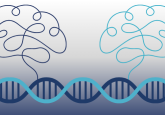Genetic variant puts African-American populations at greater risk of hydroxychloroquine cardiac complications

Use of unproven COVID-19 therapeutics, such as hydroxychloroquine, could increase the risk of developing cardiac complications in African-American populations.
As the COVID-19 pandemic has progressed, the discourse around the use of hydroxychloroquine as a treatment has been mixed, with trials starting, then stopping, and studies being published, then retracted, generating a worldwide discussion about how data is used in scientific evaluations. However, despite the lack of scientific evidence, with the support of a President behind it many people put their faith in the unproven therapeutic and outpatient prescriptions for hydroxychloroquine have risen by up to 22,700 % compared with March 2019.
If you would like to keep up to date with our content on coronavirus, you can sign up for our site here, where you can subscribe to our newsletters for free!
Now, researchers have urged caution as a new study has linked the drug to a genetic variant that could lead to an increased risk of developing drug-induced ventricular arrhythmias and sudden cardiac death. The genetic variant was found only in the African-American community, with nearly 1 in 10 African Americans possessing the variant.
COVID-19 has put the spotlight on the inequalities in the healthcare system that are faced by Black people, with both socioeconomic and cultural factors found to contribute to the racial disparities shown in pandemic victims. The recent study suggests that genetic predisposition may also be a contributing factor as to why more Black people have died.
The African-specific genetic variant, p.Ser1103Tyr-SCN5A, codes for an ion channel and has been shown to have proarrhythmic potential that can be enhanced by hypoxia or QT-prolonging medications, such as hydroxychloroquine.
 COVID-19 retractions put the spotlight on bad data
COVID-19 retractions put the spotlight on bad data
The recent news regarding the hydroxychloroquine and COVID-19 retractions highlights data remains a problem for scientific integrity and reproducibility.
A common feature of COVID infection is direct or indirect myocardial injury or stress, likely caused by direct SARS-CoV-2 myocardial infection, a cytokine storm immune response or hypoxia. The occurrence of hypoxia in COVID-19 patients raises concern that those with the p.Ser1103Tyr-SCN5A variant are also much more likely to have severe myocardia injury, potentially leading to ventricular arrhythmia and sudden cardiac death from the SARS-CoV-2 infection. Published in Heart Rhythm, the study suggests that as many as 1 in 13 African Americans could be at an increased risk of cardiac death during the COVID-19 pandemic.
“The genetic variant p.Ser1103Tyr-SCN5A, is a potentially proarrhythmic, sudden cardiac death marker for African Americans, and seeking its presence and respecting it is long overdue,” commented study senior author Michael J. Ackerman (Mayo Clinic, MN, USA).
With recent studies disputing the efficacy of hydroxychloroquine in the treatment of COVID-19, the authors advise against its prescription or its use for self-medication. However, if hydroxychloroquine or other COVID-19-directed QT-prolonging medications are to be used, careful cardiac monitoring should be implemented.
Further research into the racial health disparities is required; however, given the lack of banked DNA in many COVID-19 epicenters and the myriad of social and economic factors that also contribute to the healthcare inequalities, the authors question whether investigation into the link between p.Ser1103Tyr-SCN5A and COVID-19-related cardiac death is even testable. They call for use of existing DNA biobanks and studies, such as the Jackson Heart Study, to further investigate the genetic causes of cardiac disease in the African-American population.




